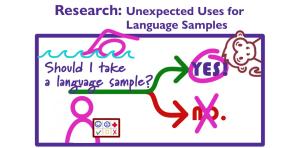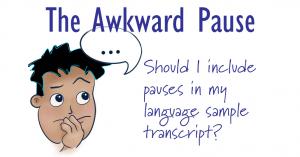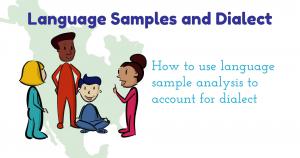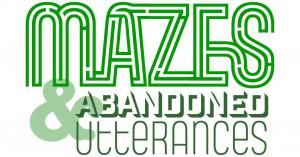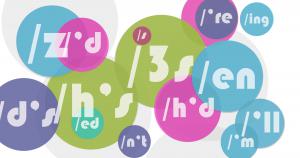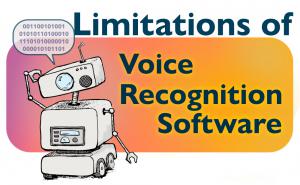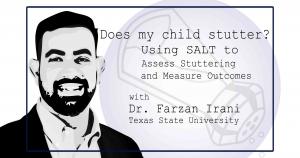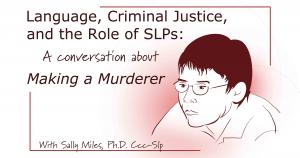-
Letting Them Go: Exiting Students From Speech-Language Services
Jun 01 20220We’re finally at the end of the school year! It’s that time of year when I evaluate and consider who really needs to continue speech-language services. When possible, I try to exit students before middle school. But when IS it time to let them go? Throughout my 20 years as an SLP, I’ve provided services covering the lifespan. One of the best (and probably most rewarding) parts of being a...
-
Research: Unexpected Uses for Language Samples
Dec 01 2021From toddlers with cochlear implants to adults with primary progressive aphasia (and everything in between), SALT has been part of researching people’s spoken language. Oh, and apes’ too! One of my great joys is consulting with researchers from Communication Sciences and Disorders, Psychology, Linguistics, Neuroscience, Ed Psych and more and finding out their research interests to determine how...
-
The Awkward Pause
Jun 02 2021Should I include pauses in my transcript? The Awkward Pause! We’ve all been there. Maybe the awkward pause was during a casual conversation with a friend, or when you were talking to someone new at a party and ran out of interesting things to say. Pragmatically, we feel compelled to fill that pause with something! Part of learning to take great language samples is overcoming our fear of the aw...
-
Language Samples and Dialect
Apr 20 2021Background The way we talk is a window into who we are, where we came from, and how others perceive us. When I moved to the Pacific Northwest (PNW) the locals thought I had an accent. Some vocabulary words are different in the PNW. I had one student tell me about going out on his quad and I had no idea what he was talking about. In the Midwest, where I am from, a “quad” is called a “fo...
-
Mazes and Abandoned Utterances: Why They Matter
Feb 26 2021You may have noticed that some methods of language sample analysis ask you to include mazes in transcription, while others do not. SALT does ask you to include mazes. Have you ever wondered why? Perhaps you had the sneaking suspicion that, if some protocols exclude mazes, they can’t really be that important. And, after all, including them makes transcription longer and more complex, so there ha...
-
Why do we mark some bound morphemes and not others?
Jan 28 2021The SALT reference databases use a very specific set of conventions for marking bound morphemes. Our protocols do not represent the only way to mark morphemes but if you want to compare your sample against our databases, it is important for you to use these same conventions. If you aren’t interested in the nuts and bolts, just skip down to the “Summary” section. It’s the most condensed version ...
-
Why Voice Recognition Doesn’t Work for Transcription
Jan 26 2021You mean, I can’t just record the language sample right into SALT? When talking with people new to SALT I frequently hear, “Oh, I have to transcribe the sample? Can’t I just record into SALT?” There is typically a look of disappointment when I reply that the speech recognition software available to us today just isn’t accurate enough for our purposes. The goal of LSA is to document functional,...
-
Does My Child Stutter? Using SALT to assess stuttering and measure outcomes
Mar 10 2020Stuttering is a childhood-onset disorder of speech fluency that has an incidence of ~5% in preschool age children and a prevalence of ~1% in adults (Bloodstein & Ratner, 2008). For most children, stuttering begins between the age of 2-5 years (Guitar, 2019). With the relatively high incidence of stuttering, it is more than likely that a SLP working with pre-school age children will have a f...
-
Language, Criminal Justice, and the role for SLPs: A conversation about "Making a Murderer"
Feb 10 2020This article is based on a telephone conversation between Sally Miles, Ph.D., CCC-SLP and Karen Andriacchi M.S., CCC-SLP. The conversation was a follow-up to the language sample transcription [by SALT Services] and the analysis [by Sally using SALT software] of the Brendan Dassey interrogations made famous by the Netflix documentary, “Making A Murderer”. The first half of the interview (today’s...
-
Transcription Shortcuts
May 15 2018You didn’t get a degree in Speech-Language Pathology without at least hearing about language sample analysis (LSA). For those of us who had to learn to analyze a language sample by hand, I feel your pain. In another post, I share why I believe the labor-intensive, prone-to-error, by-hand method of LSA is outdated, unrealistic, and destructive to the process. I digress. Today’s entertaining read...


